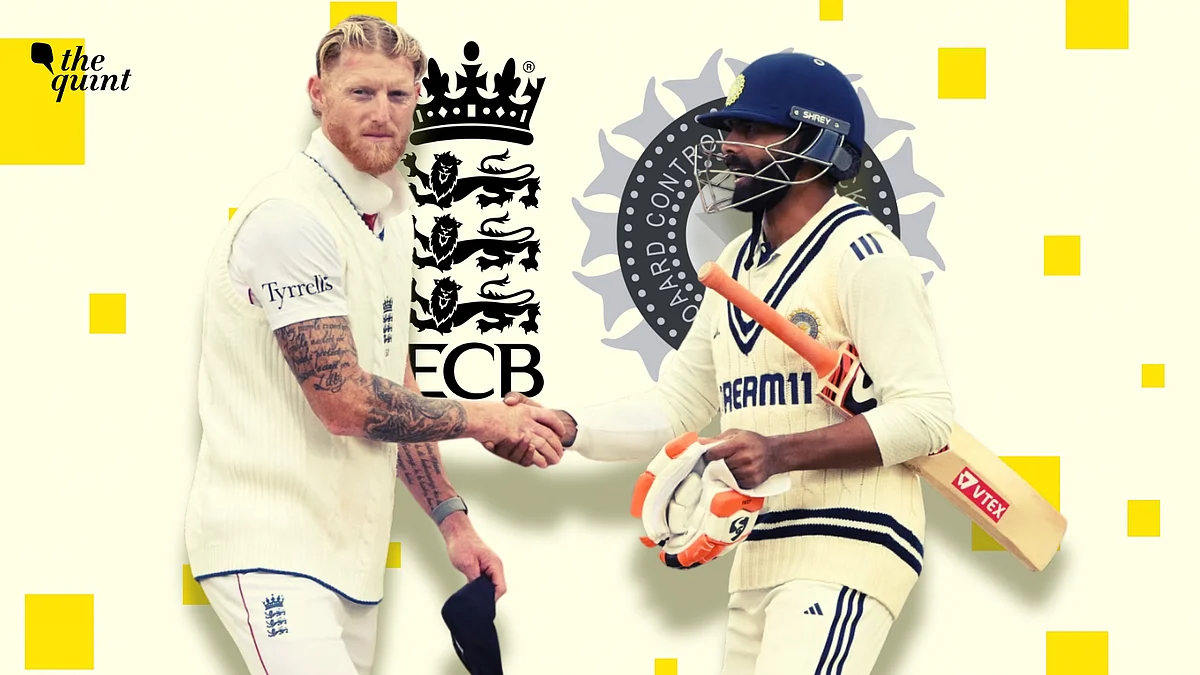India vs England: Has No One Told England That Handshakes Are Mutual?
India vs England: Test draws elicit handshakes — but when they are agreed upon, not forced.

advertisement
Test cricket is bizarre. Yet, nothing matches the strangeness of a drawn Test match. It is as imperfect as it is perfect, as flawed as it is flawless.
Where else in sport do two teams fight tooth and nail, hammer and tongs, across five consecutive days, through 35 grueling hours, only to agree, at the end of it all, that there need not be a winner? Where the necessity of triumph is deemed futile — and both walk away having given everything, yet content with a shared stalemate?
In this regard, the draw is balance incarnate. It is not a Christopher Nolan film, where the ending is left open to interpretation. Nor is it a mirror of today’s world, where both Benjamin Netanyahu and Ali Khamenei can claim they have won the battle, with Donald Trump claiming he was at the heart of peace.
Test cricket happens to the heart of peace. The shrine of harmony. The chapel of ceasefire. The nymphaeum of the gentleman’s game. You throw all you have. And when there's nothing more to throw, you drop your ego. You shake hands.
That is, however, until it becomes about ego. And then, as Ravindra Jadeja and Washington Sundar reminded us on Sunday, you better not shake hands.
India Batted, Because They Could
At the last hour of a Test match, if both teams agree that there is but no other outcome possible except a draw, they can decide to shake hands and end each other’s misery. England captain Ben Stokes knew the rule. What he seemed to forget was that it must be mutual.
First, let’s contextualise.
At that stage, India were 386/4, on the back of their first innings score of 358. England had scored 669, meaning India had a 75-run lead at that point. From the macrocosmic vantage, the game was dead and buried. Yet, there were a few personal battles yet to be won.
Washington Sundar, at that stage, was only 20 runs shy of his maiden Test ton. He had come close on multiple occasions before, and deserved every chance to get to the milestone.
And what about his partner, Ravindra Jadeja? He was batting on 89, and could see his third Test century against England, second in England, and fifth in the format, on the horizon. He deserved every chance to score his century.
The Milestones Were Important, but Not as Much as the Message
Yes, Stokes was within his rights to offer a draw. What he didn’t have was the authority to force one.
When Jadeja announced that he can’t simply walk off because it was a decision he has jurisdiction over, the surprise among the English players came from a place of entitlement. How could he? How could India?
There were verbal jibes.
‘How long do you need, an hour?’
‘Just shake your hands and be done.’
‘If you wanted a 100, you should have batted like it earlier.’
‘You’re gonna get a Test hundred against Harry Brook and Ben Duckett?’
Yet, the orchestrated barrage seemed not only avoidable, but also entitled and prerogative.
When Harry Brook was handed the ball, Stokes’ body language screamed indifference. What should not be overlooked is the fact that Jadeja and Sundar reached their centuries by enduring everything that England threw at them — Liam Dawson, Jofra Archer, Brydon Carse, Chris Woakes and Joe Root.
When the Indian coach Gautam Gambhir was asked about it, he rightfully said:
Gill echoed:
A Pattern?
England’s indignation didn’t come from nowhere. Its roots run deep.
Before he was the Indian team, Iftikhar Ali Khan Pataudi played for England. And despite a stunning century, he was dropped from the team because he did not adhere to English skipper Douglas Jardine’s bodyline field placement.
“I see his highness is a conscientious objector,” said Jardine. He had to leave his ‘adopted’ country for his ‘home.’
Even that feels old? Before the beginning of the ongoing series, Graeme Swann told Sky Sports that the five-Test affair against India served as the “perfect warm-up for the Ashes” to the English.
Let's Not Forget
Beyond the symbolism of one moment, India must be credited for something far deeper: character. And while character is intangible, in this case, it wore the face of sheer batting grit. At 0/2 in response to England’s 669, and trailing by 311 runs, England had a win probability of 97%. Yet, Gill and KL Rahul’s rearguard action constructed a 188-run third-wicket partnership, which happened to be the highest in any Test match when a team was at 0/2.
So did Rishabh Pant, for how he braved a fractured foot to bat in the first innings.
Per the scoreline, the game ended in a draw. But to force Stokes to offer a hand, considering England had only once drawn a Test match in the Bazball era, and even that was owing to rain, was a victory in itself. And so was the reaction to not accept everything that was thrown their way.
With the fifth Test beginning on Thursday, and having forced England to bowl over 250 overs, India can have their tails up and their pride intact. Because even in a sport as sacrosanct as Test cricket, there is a little bit of room for ego.